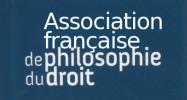Paper's abstract
Catherine
Bourgain,
Is it Enough to Treat Genes?
Genetics is a science that has been constituted for action, and whose legitimacy has been largely built by action, in applied contexts. In Man, however, the utility of this knowledge for action makes resistance. Projects of direct DNA modification by gene therapy are complex to master outside a few specific situations. If the a priori quantifi-cation of the effect of genes on a human character is impossible, a measure - herita-bility - is stirring up trouble. Developed by eugenic scientists, it is most often misused to justify the importance of genes. It also contributes to spread the idea that inherita-ble biological effects and environmental effects act independently, simply cumula-tively, even when all the results of biological research show otherwise. Indeed, the current identification of genetic variants associated with complex characters in humans is based on a statistical model embodying the same idea. Their difficulties in predicting morphological traits or complex illnesses largely reflect this excessive drop in complexity. Under these conditions, to act genetically ON the genes can’t be a strategy qualified as "sufficient", but the possibility to act WITH genes is itself extremely weakened and must be looked at on a case-by-case basis, with a concern to conduct rigorous cost/benefit assessments, taking into account the many social externalities of genetics.
Key Words : Fisher Therapy genetics
t. 59, 2017: p. 39-52
